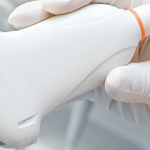It has been gratifying to see the progress of the Committee on Rheumatologic Care (CORC) Health Information Technology (HIT) subcommittee, now part of the Committee on Registries and Health Information Technology (RHIT) that was created in 2010. Through the efforts of CORC, chaired by Charles King, MD, of North Mississippi Health Services at Tupelo, Miss., and RHIT, chaired by Peter J. Embi, MD, MS, assistant professor and vice chair of biomedical informatics at The Ohio State University in Columbus, recommendations and advice now flow regularly and frequently to members on such issues as choosing an electronic medical record (EMR) for your office and how to satisfy regulatory requirements for your EMR. They are a great member resource if you have HIT questions. The Registry Task Force—initially chaired by James O’Dell, MD, director of the Internal Medicine Residency Program and division chief of rheumatology at the University of Nebraska, Omaha, who is now the ACR President—developed the infrastructure to capture patient information to help members satisfy their Practice Improvement Module for Maintenance of Certification. It will be important in the future to prove your quality to carriers, and participating in a registry will simplify the process.
Our Organization, Our Future
The small group and solo practice of rheumatology is clearly under attack on many fronts. Just to manage the continually growing administrative burden of prior authorization processes with all the diverse carriers has been difficult enough. Add in the EMR requirements, declining reimbursement for dual-energy X-ray absorptiometry scans, the threat of bounty-hunter audits leading to unfair conclusions, a Sustainable Growth Rate fix that refuses to be fixed, and spiraling overhead, and what is a rheumatologist to do? Now, Congress has promulgated legislation promoting the formation of Accountable Care Organizations (ACOs). The final regulations have been published. Where does the single-specialty group or solo practice of rheumatology fit into this healthcare system redesign? Although the question of whether ACOs will dominate healthcare delivery in the future is a matter of conjecture, one thing is clear: Rheumatologists will need to adopt new strategies to succeed in the changing healthcare environment.
Who better to lead us through the times to come than the ACR? For me, there has been nothing more professionally satisfying than contributing to a cause larger than myself. If you want to contribute your time and energy to your patient’s cause, to the care of rheumatic disease patients, and to your profession, consider volunteering for the ACR. The ACR needs you. I can personally guarantee that your work with colleagues who also want to improve the care of rheumatic disease patients will enrich your life.


